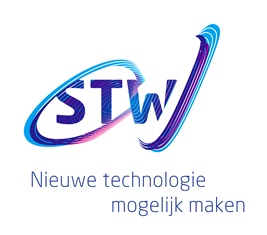Project Summary
Research Summary
Humans often manage to learn the behavior of a device or computer
program by just pressing
buttons and observing the resulting behavior. Especially children are
very good in doing this
and know exactly how to use a game computer, iPod or microwave oven
without ever consulting a
manual. In such situations we construct a mental model of a state
diagram: we determine in which
global states a device can be and which state transitions and outputs
occur in response to which
input. This research proposal deals with the design of algorithms that
will allow computers to
learn complex state diagrams by providing inputs and observing outputs.
The state diagrams that
can be learned by current techniques have at most 30.000 states. In
contrast, the state diagrams
that govern the behavior of computing based systems (defined using
dozens of state variables)
typically have more than 10
1000
states. This year we obtained a breakthrough in learning large
state diagrams in collaboration with prof. Jonsson from the University
of Uppsala: based on
some global information about how an application handles data, our
algorithm learned models of
some realistic communication protocols (TCP, SIP and the new biometric
passport). The research
objective of the ITALIA project is to further develop this technique
and to construct a tool set
that will allow us to learn | routinely and fully automatically | state
diagrams with up to 40
state variables. Our project is unique in bringing together research on
automata learning with
research on machine learning, model based testing, and computer-aided
verification.
Utilisation Summary
Once they have high-level models of the behavior of software
components, software engineers can
construct better software in less time: behavioral models can be used
to simulate a system and
reason about it, they allow all stakeholders to participate in the
development process and to
communicate with each other, they can be used to generate and test
implementations, and they
facilitate reuse. A key problem in practice, however, is the
construction of models for existing
software components, for which no or only limited documentation is
available. The solution that
the ITALIA project will provide is technology that will allow engineers
to infer state diagrams
models fully automatically through observations and test, that is,
through black box reverse
engineering. We expect that our technology will be particularly
effective for control oriented
applications such as embedded controllers and network protocols. The
ITALIA project will focus
on the utilisation of model inference technology within the area of
testing: once we have learned
a model of a software component, we will use model checking technology
to analyze this model
(e.g. to detect security vulnerabilities) and the technology of model
based testing to automatically
infer test suites. Using these test suites we can then check, for
instance :
- whether no new faults
have been introduced in a modified version of the component (regression
testing),
- whether
an alternative implementation by some other vendor agrees with a
reference implementation,
- or whether some new implementation of legacy software is
correct.
The development of our
inference/learning technology will be driven by challenging case
studies from a number of areas:
- embedded systems (Axini),
- secure transaction systems (Collis),
- internet protocols (NLnet Labs),
- printers (Océ-Technologies)
- and wireless sensor networks (Chess).
We will fully integrate our
technology with the Axini TestManager, a commercial model based testing
tool, and evaluate the
effectiveness of our technology by a comparison with the commercial
testing platforms of Axini
and Collis. Our goal is to reach the point where it becomes interesting
for commercial parties,
including Axini and Collis, to integrate our technology within their
testing tools.

